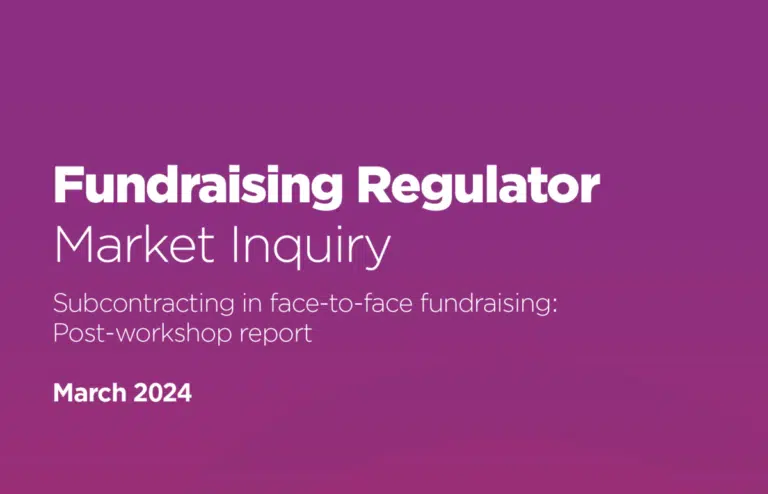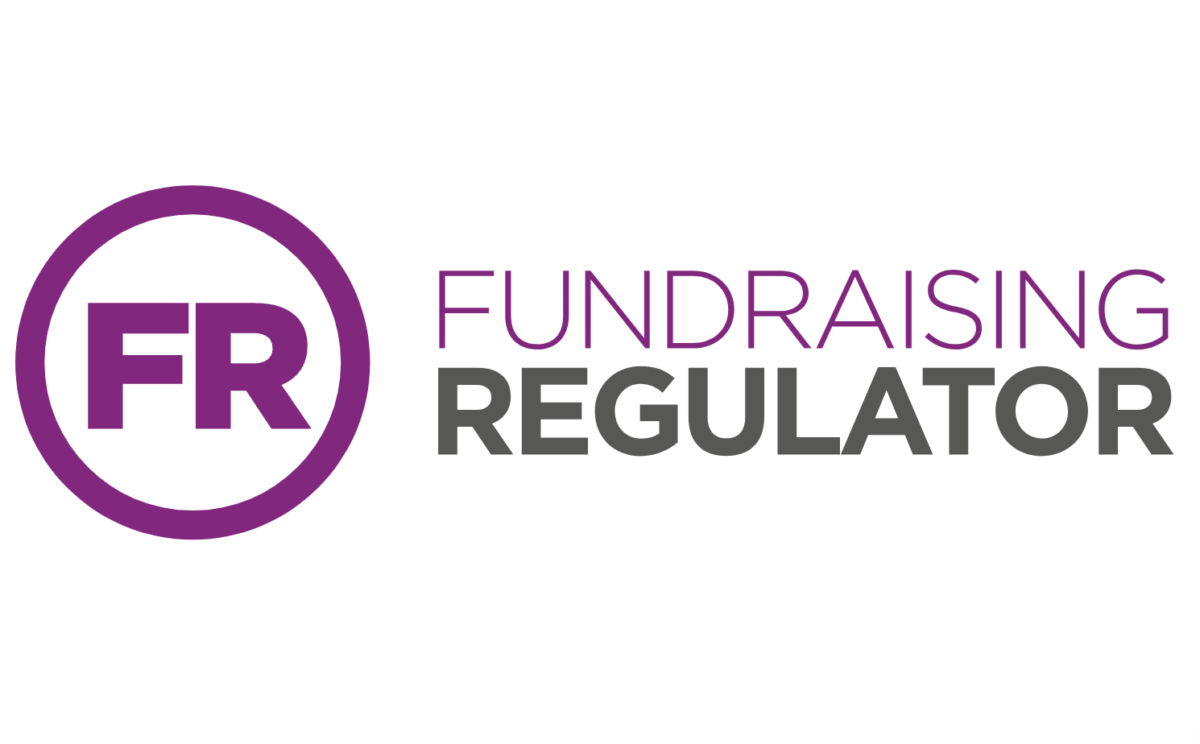Subcontracting relationships must be monitored more closely, says Fundraising Regulator

Face to face fundraising is a valuable and successful way for charities to raise funds and awareness but subcontracting relationships must be monitored more closely to reduce the risks of bad practice, the Fundraising Regulator’s market inquiry has concluded.
It says that this oversight should be ‘rigorous enough for both charity and agency partners to be reassured that fundraising is being carried out safely and in line with the contract and the Code of Fundraising Practice’ and highlights that charities are ultimately responsible for fundraising carried out in their name, and therefore for the actions of all third parties they use.
The Regulator’s report recommends that charities have explicit discussions about whether subcontracting will be permitted in contracts with their main agency and that it is expressly prohibited if not. If subcontracting is permitted, it says charities and agencies must ensure any subcontracted services are provided to a standard no less than that agreed in the primary contract.
Advertisement
This includes ensuring adequate fundraiser training to minimise the risk of poor behaviour and non-compliance with the Code of Fundraising Practice. Training and monitoring, it says, should not be sacrificed or stretched for commercial considerations.
Charities should also make sure the payment model for fundraisers is appropriate and does not lead to bad practice. The regulator says that charities should ensure all fundraisers collecting on their behalf are remunerated in a way that reflects their skillsets and the values of the charity, and that while it is ‘not prescriptive about payment models’, its preference is for fundraisers to receive a living wage.
The regulator’s first market inquiry into the use of subcontracting in face-to-face fundraising by charities and fundraising agencies saw it carry out five fact-finding workshops for the inquiry late last year, attended by 53 people from 36 charities and 25 from 18 agencies. It was launched following stories in the media about serious issues relating to the use of subcontractors by fundraising agencies including high-pressure sales techniques, and in the latest case, last month saw GOSH Charity report itself to the Charity Commission and Fundraising Regulator over claims of D2D fundraisers using ‘pressure-selling’ tactics to sign up donors.
Jim Tebbett, Head of Proactive Regulation and Projects at the Fundraising Regulator, said:
“As we have said before, it is crucial for charities to have a clear line of sight to those who fundraising in their name. It is clear from our inquiry and the workshops we ran with charity fundraisers and agencies that face-to-face fundraising is valuable for charities raising money for their causes, and there’s a widespread willingness to do the right thing. However, there are issues with subcontracting that need to be addressed by the charity sector.
“We hope that through the recommendations made in the inquiry and our commitment to work closely with the Charity Commission for England and Wales, Northern Ireland and the Office of the Scottish Charity Regulator and Chartered Institute of Fundraising to issue more robust advice to the sector around the issue of subcontracting we can ensure more charities follow best practice and reduce incidents of poor practice that we have recently seen.”
Following the inquiry’s publication, the Chartered Institute of Fundraising and Charity Commission for England and Wales have committed to working with the Fundraising Regulator to strengthen their advice around subcontracting for charities and agencies working in the sector.
Claire Stanley, Director of Policy and Communications at the Chartered Institute of Fundraising, said:
“This is a useful and informed report from the Fundraising Regulator. We are glad to see it acknowledges the importance and value of door-to-door fundraising – it is absolutely vital in the fundraising efforts of so many charities across the country, and one of the most effective methods of raising much-needed money, increasing awareness of causes and engaging with members of the public.
“We have a positive outlook on the future of public fundraising, and we know our members are committed to best practice. We will engage further with them, and use this report, to form the basis of our work in producing new or updated guidance on due diligence, training, monitoring, contractual standards, payment mechanisms, and how accountability will apply across the subcontracting chain. In the coming months we will be offering new on-demand training courses for our members and their agencies who are carrying out face-to-face fundraising – be that door-to-door, on-street or at private sites.
“In addition to this we have reconvened our Public Fundraising Operational Management Panel, and Public Fundraising Operational Users Forum to allow organisations and agencies to come together to discuss best practice in, and share experiences of, public fundraising. Any fundraisers who are interested in joining these meetings should reach out to us directly. We will work closely with them, our other members, and the Fundraising Regulator to provide ongoing support and ensure the Code of Fundraising Practice continues to be upheld.”
Holly Riley, Head of Strategic Policy at the Charity Commission, said:
“We welcome today’s report from the Fundraising Regulator which puts an important spotlight on the risks and issues that all trustees should be aware of when using subcontractors to fundraise on behalf of their charity.
“As stated in our guidance, all charities should raise money in a considerate and responsible way, mindful that public generosity can never be taken for granted. We continue to work with the Fundraising Regulator in setting out expectations and supporting the sector to follow best practice.”




